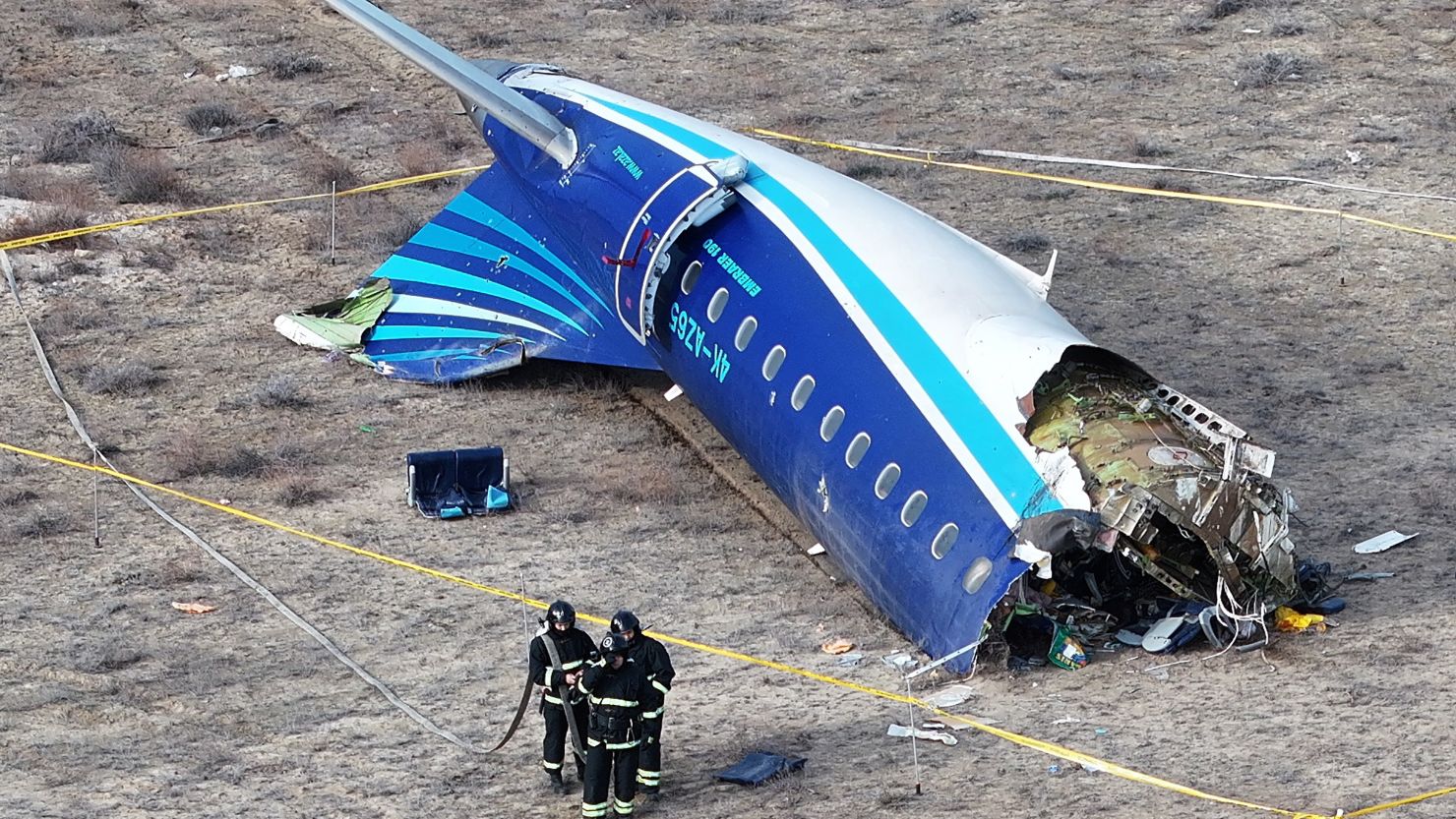- Russian air defenses allegedly shot down an Azerbaijani passenger plane, misidentifying it as a drone. The-Sun.com
- The crash occurred over Russian airspace, killing 38 people and leaving 29 survivors. Reuters.com
- Azerbaijani investigators reported external physical impact as a potential cause, supported by survivor testimony and shrapnel damage analysis. APNews.com
- Russian President Vladimir Putin apologized for the incident but did not admit responsibility, calling it a “tragic event.” NYPost.com
- U.S. intelligence and aviation experts suggest Russian anti-air systems, like Pantsir missiles, were likely involved in the incident. Military.com
From this perspective, the crash of Azerbaijan Airlines Flight J2-8243 is seen as an unfortunate result of military misidentification. Russian air defense systems, heightened in readiness due to Ukrainian drone activity, may have mistakenly targeted the civilian airliner. This interpretation emphasizes the dangers of operating military systems in close proximity to civilian air traffic and calls for international regulations to mitigate such risks. The event is a stark reminder of the collateral damage in regions experiencing heightened military tensions.
This perspective highlights the political ramifications of the crash, focusing on Russia's response and Azerbaijan's demands for accountability. Russian President Vladimir Putin's apology without admission of responsibility reflects a cautious approach to managing international relations. The incident underscores tensions between Russia and its neighbors, as well as the broader geopolitical implications of military mismanagement in conflict zones. Azerbaijan’s calls for a thorough investigation could strain its ties with Russia, especially if evidence confirms external interference by Russian systems.
This perspective centers on aviation safety, stressing the vulnerability of civilian flights in conflict-prone regions. The crash, which occurred near a militarized zone, points to inadequate coordination between military operations and civilian aviation. Survivors’ accounts of explosions and shrapnel damage raise questions about the effectiveness of safety protocols in diverting aircraft away from potential threats. This viewpoint advocates for enhanced international aviation safety standards, particularly in areas with active or residual conflict, to prevent similar tragedies in the future.
Details
Analysis
Bias

Reactions
The article highlights potential issues like missile interference, stating, 'There were clear signs of damage consistent with a missile strike.' This framing shifts the narrative toward Russian responsibility, creating a negative tone.
Read full article
The article emphasizes that the suspensions are based on Azerbaijan’s safety concerns, stating, 'This decision was made by Azerbaijan’s aviation agency,' while downplaying any role of Russian airspace safety.
Read full article

The article underscores statements like, 'The Azerbaijani plane was shot down by a Russian missile,' portraying Russia in a critical light and highlighting Western alignment in supporting Azerbaijan.
Read full article
Negative
Sentiment
The article primarily states the facts, such as the crash details and flight suspensions, without assigning blame or discussing broader implications. For example, it notes, 'Azerbaijan Airlines will suspend flights to several cities,' focusing on the logistical outcomes rather than any specific narratives.
Read full article
By reporting the facts of the crash and subsequent flight cancellations, the article avoids assigning blame. For instance, it mentions, 'The decision was made by the State Civil Aviation Agency of Azerbaijan,' reflecting a focus on procedural outcomes.
Read full article

The article highlights the cooperative efforts among Russia, Azerbaijan, and Kazakhstan, stating, 'Authorities are closely cooperating at the crash site,' without assigning blame or speculation.
Read full article
The article mentions the EU's request for an inquiry, stating, 'The EU calls for a rapid and independent investigation,' without pushing any specific narrative of culpability.
Read full article
Neutral
Sentiment
While referencing general aviation trends, the article avoids engaging with the crash's specifics, instead celebrating Russia's increased taxi travel statistics. This deflection suggests a subtle bias toward minimizing the incident's gravity.
Read full article
Positive
Sentiment




